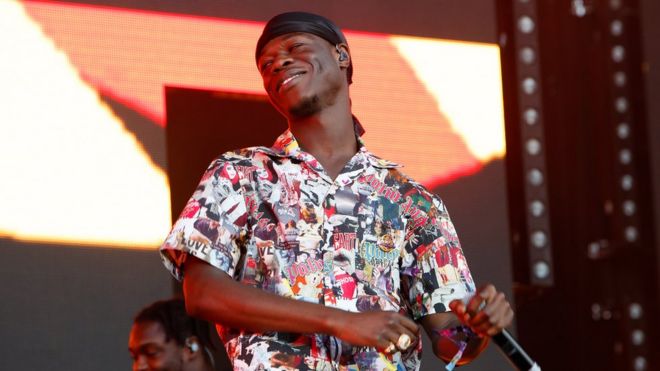J Hus has been named the biggest Afrobeats artist in the UK over the past 12 months, as the genre finally gets its own chart.
Based on streaming data and sales, he's followed by Nigeria's Burna Boy and Hackney collective NSG.
The Official UK Afrobeats Top 20 will be announced on BBC Radio 1Xtra on Sunday.
Mark Strippel, 1Xtra's head of programmes said the chart was "much-needed and long overdue".
Afrobeats has quickly grown to dominate playlists and radio, with UK artists developing their own style and sound (Afroswing/Afro bashment) from its origins in west Africa.
Young T & Bugsey's Don't Rush has been named the biggest Afrobeats track of the past year.
An Afrobeats History
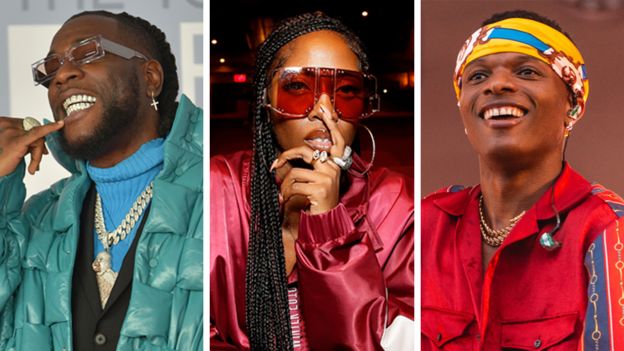
The 's' in Afrobeats is crucial.
Don't confuse it with Afrobeat - which was pioneered in the late 1960s by Nigerian artist and activist Fela Kuti.
Fela and his drummer Tony Allen formed a movement when they fused funk and jazz with Ghanaian highlife, traditional Yoruba music and conscious lyrics.
The 2010s saw the rise of another musical movement out of Nigeria with a completely different sound, dubbed Afrobeats.
D'Banj's 2012 hit Oliver Twist, which reached number nine in the UK charts, was probably the first time the sound really took hold in the UK.
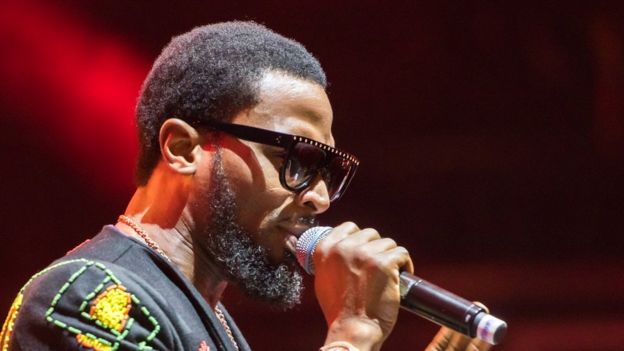
Big tracks from Fuse ODG like Antenna and Azonto followed, but more recently in the UK, the lines have been blurred between sounds from the West Indies, London and West Africa.
Brixton rapper Sneakbo's music hinted at the genesis to come at the start of the decade, and by the end of it artists like Yxng Bane and Not3s were at the forefront of what was being dubbed Afro bashment, or Afroswing.
Along with the likes of NSG, Juls, Naira Marley and Afro B, they've helped popularise the sound in the UK - while J Hus and his producer JAE5 have arguably had the most success combining dancehall with West African sonics and black British genres and flows.
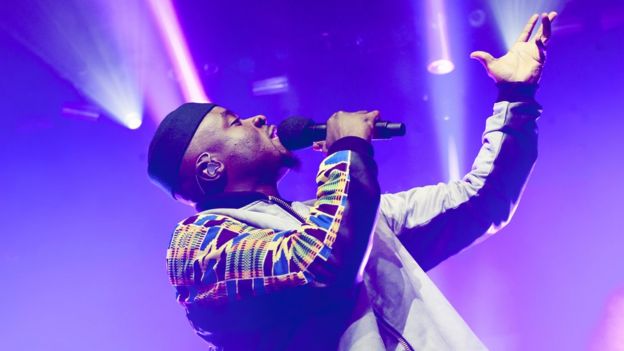
Afrobeats reached new levels internationally when Drake featured Wizkid on 2016's One Dance.
It's arguably not got too much of an Afrobeats sound - borrowing more from dancehall and UK funky house - but it put a spotlight on Wizkid and the genre he flies the flag for.
Fuse ODG's spoken of wanting to create a new image of Africa through Afrobeats music too.
His Tina movement - which stands for This Is New Africa - "urges Africans in the Motherland and the diaspora to use their skills to rebuild their community and show the world the more beautiful side of Africa".
The UK's Official Top 10 Afrobeats artists of the past 12 months are:
- J Hus
- Burna Boy
- NSG
- Yxng Bane
- B Young
- Ziezie
- Young T & Bugsey
- Not3s
- Darkoo
- Kojo Funds
Source: The Official Charts Company
An Afrobeats Hijack?
In 2019, Afrobeats artists collectively spent 86 weeks in the Official Chart Top 40, up from 24 weeks in 2017.
The number of tracks featuring a lead or featured Afrobeats act has also doubled in the same period, led predominantly by British artists.
"London is the home of Afrobeats outside of Africa," says Folabi Ogonkoya, who runs CocoCure - a venue dedicated to the genre.
Born in Lagos, Folabi's been putting on Afrobeats nights in the UK for 13 years to reflect the music he enjoyed when he was growing up.
"I was listening to Afrobeats before it even had a name," he says.
"The parties started off a bit slow but they picked up as the genre got more popular and so I decided to stay in the UK. "
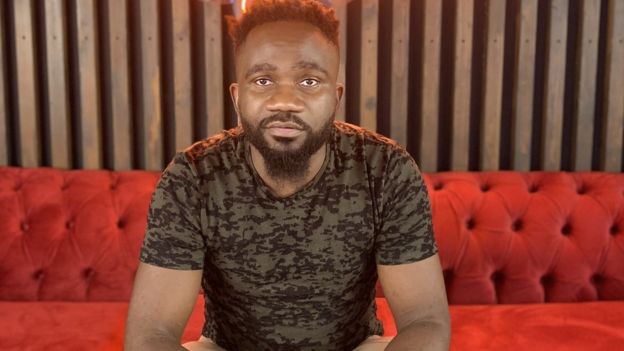
He says lots of British artists have "hijacked" Afrobeats in a good way, moving the music forward and increasing its popularity.
"The fans are huge now. At first it was Africans in the diaspora but now everyone's embraced it. Things have worked out for the best."
From Manchester to London to Lagos
Male artists dominate the Afrobeats scene but Manchester-born Ezi Emela is one of several female singers making their mark.
"I can see Afrobeats becoming the world's biggest musical genre soon," she says.
Until January 2019, she was living in London but decided she wanted a change. During a holiday to Nigeria, she phoned her mum to tell her she was sticking around.
"My sounds has grown so much since I've been here," she tells Radio 1 Newsbeat, from her home in Lagos.
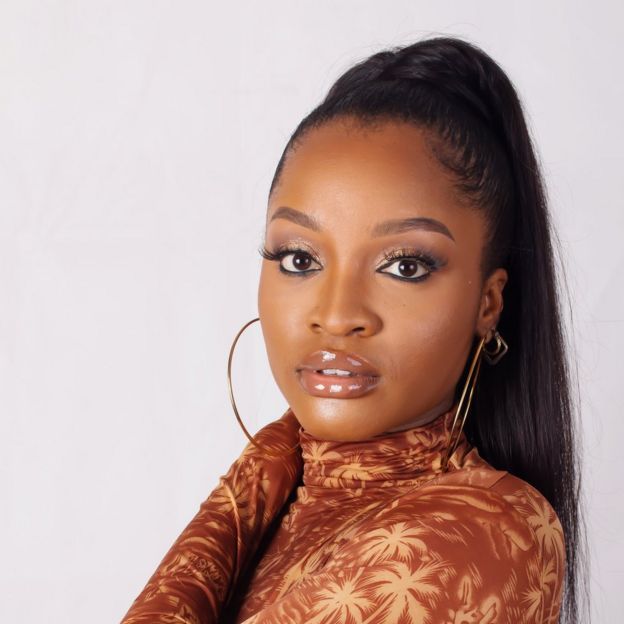
Nigeria is her parents' birth country and Ezi says "being in the actual continent where my genre stems from" has given her "a new juj".
"In the UK, I don't think I was connected to the music and I felt I was faking it a little bit.
"I hadn't connected to the culture."
She thinks every artist "getting into the African swing of things" should try to get to Africa at some point (travel restrictions permitting obviously).
"It's changed me a lot. It has changed my style. It has given me a lot of inspiration and it's all made a big difference to my music."
Latest Stories
-
AG has recovered 10.6% of the Unibank liability, not 60% as he claims – Bright Simons
11 minutes -
Residents commend MTN for community engagement, call for continuous service improvements in Tsito
24 minutes -
Al-Azhariya Islamic cluster of schools in deplorable state: Teachers call for renovation
26 minutes -
France urged to address colonial legacy as Senegalese activists call for reparations in Dakar Roundtable
29 minutes -
“Eat AI, drink AI, live AI” – UG Professor
31 minutes -
Direct Relief applauds Breast Care International for lifesaving medical support in Ghana
32 minutes -
“A cultural force and national treasure” – Tourism Minister pays tribute to late Daddy Lumba
33 minutes -
Kufuor mourns Highlife icon Daddy Lumba: “A thunderbolt to the nation”
34 minutes -
Hindsight: Zito’s Kotoko era begins with a blast from the past
40 minutes -
Prosper Ogum appointed Black Starlets boss and GFA head of coaching education
45 minutes -
NSMQ 2025: Prempeh College into Ashanti Zonal semis, chasing first title since 2021
56 minutes -
“A true professional and musical gem” – Appietus pays tribute to Daddy Lumba
56 minutes -
Mahama pledges tax waivers on agro-processing machinery, boost for local fabrication sector
1 hour -
‘Mahama has no interest in Bawku conflict’ – Edudzi Tamekloe
2 hours -
15 members of Obogu Saviour Church Youth Ministry perish in a gory accident at Juaso
2 hours

